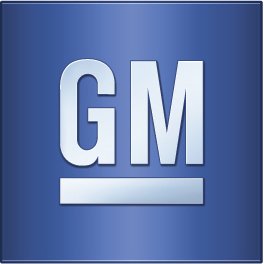UPDATE 3-GM, Ford will reroute Baltimore shipments after bridge collapse
Ford Chief Financial Officer John Lawler said the bridge collapse, which happened after a container ship smashed into the four-lane bridge early on Tuesday, will force the automaker to divert parts to other ports and impact its supply chain. "It's going to have an impact," Lawler told Bloomberg News.

U.S. automakers General Motors and Ford will reroute affected shipments after a bridge collapse in the U.S. shuttered the Port of Baltimore, but the companies said on Tuesday the impact will be minimal. "We expect the situation to have minimal impact to our operations. We are working to re-route any vehicle shipments to other ports," GM said in a statement.
The Port of Baltimore is the busiest U.S. port for car shipments, handling at least 750,000 vehicles in 2023, according to data from the Maryland Port Administration. Motor vehicles and parts accounted for 42% of all Baltimore port imports. Ford Chief Financial Officer John Lawler said the bridge collapse, which happened after a container ship smashed into the four-lane bridge early on Tuesday, will force the automaker to divert parts to other ports and impact its supply chain.
"It's going to have an impact," Lawler told Bloomberg News. "We'll have to divert parts to other ports... It will probably lengthen the supply chain a bit." Ford told Reuters in a separate statement "where workarounds are necessary in the short term, our team has already secured shipping alternatives."
Industry officials said it was too early to say what impact the accident will have on the auto sector. "But there will certainly be a disruption," said John Bozzella, CEO of the auto trade group Alliance for Automotive Innovation. "Baltimore is the No. 1 automobile port in the U.S., and we’re in touch with federal officials to help them understand the scale of automotive operations there.”
Rescuers have pulled out two survivors, one of whom remains hospitalized, and were searching for more in the Patapsco River after huge spans of the 1.6-mile (2.57 km) Francis Scott Key Bridge crumpled into the water. Breakwave Advisors managing partner John Kartsonas, a shipping analyst and investor, said Baltimore is a significant port for imports of consumer goods, cars and other imports.
"There are a lot of other areas that can pick up the slack like the New York Harbor and all the way down to Savannah, Georgia," he said in an email. "It will take a while for the situation to resolve and to begin operating normally again, so definitely there will be delays in deliveries of goods." Other transportation companies reported no major impact.
"While Baltimore is not a primary port for our North American operations, there will be some impact, primarily on vehicle exports," Toyota said in a statement. "At this time, we do not anticipate a significant disruption, but we are evaluating the situation closely to determine the longer term impact and countermeasures.” Volkswagen Group of America said it was not impacted because its Baltimore facility is located on the easterly sea board of the bridge collapse, while Nissan said it did not expect significant impact at this time.
BMW said the car docks are located on the ocean side of the harbor, so there was no major impact expected as the bridge collapse will not affect ships. It added that land-side truck traffic would be rerouted. Mercedes said the incident has had no impact on vehicle exports or the company's Tuscaloosa, Alabama, plant's parts supply, and it was monitoring the situation. It said it uses ports in Baltimore, as well as in Georgia and South Carolina, for vehicle imports.
Volvo Group, which makes trucks, construction equipment and engines, said it was looking over its inventory in its U.S. production facilities to see if and when there could be a disturbance in worst-case scenarios, adding it currently expected no huge impact.
(This story has not been edited by Devdiscourse staff and is auto-generated from a syndicated feed.)










